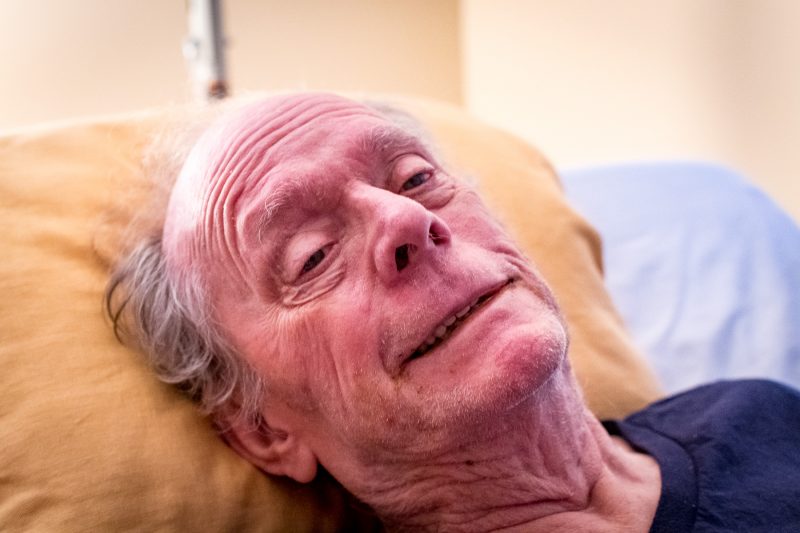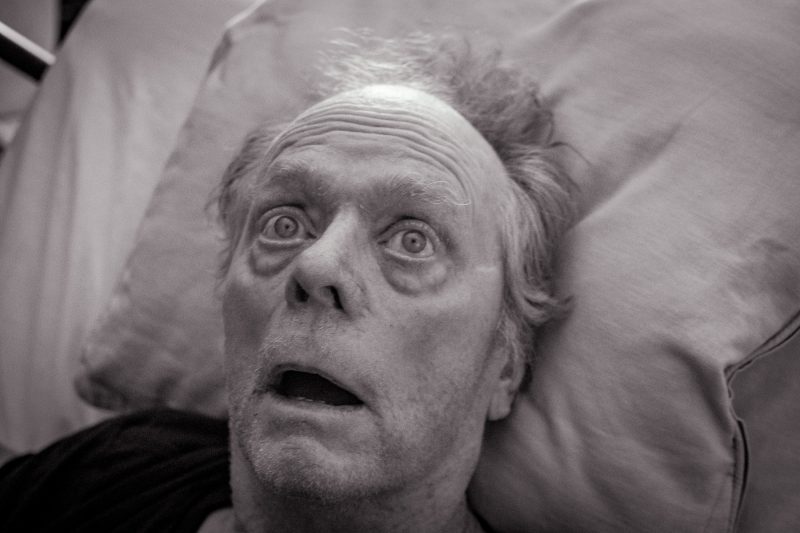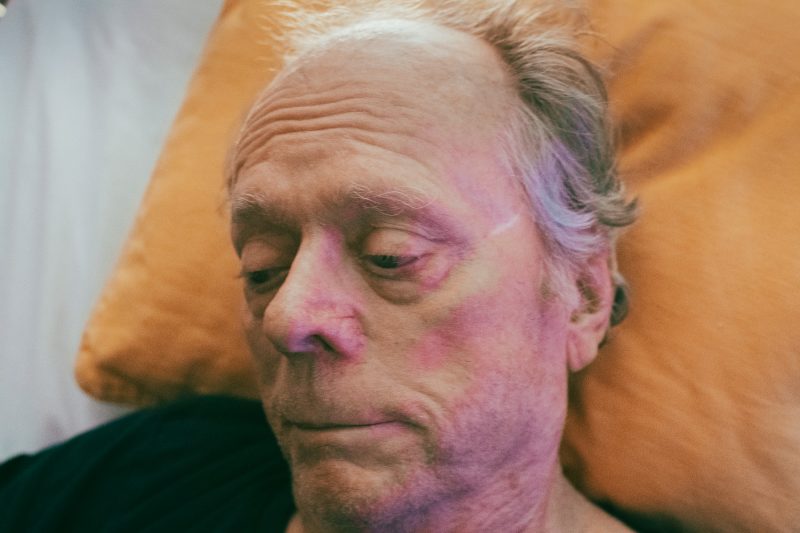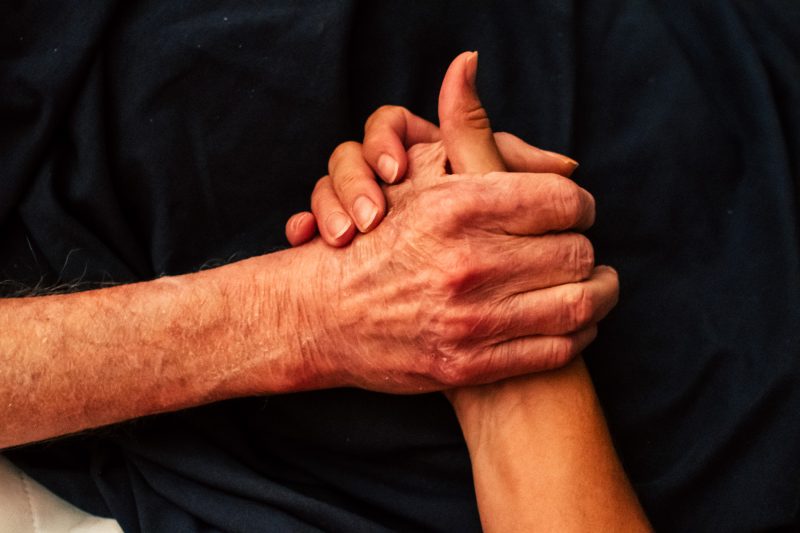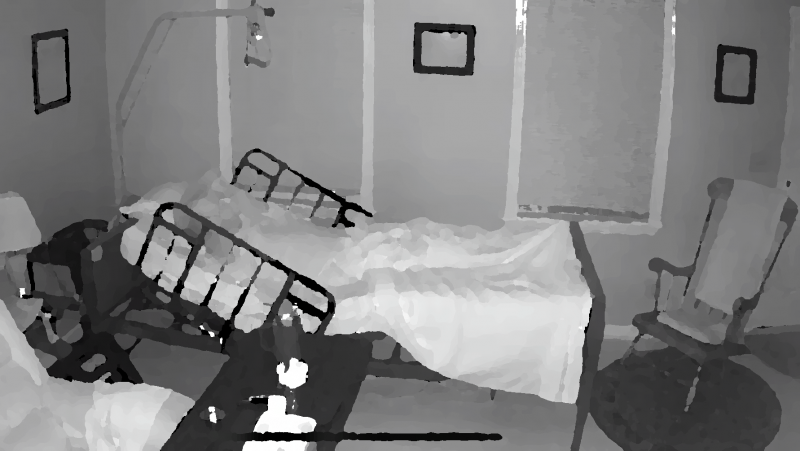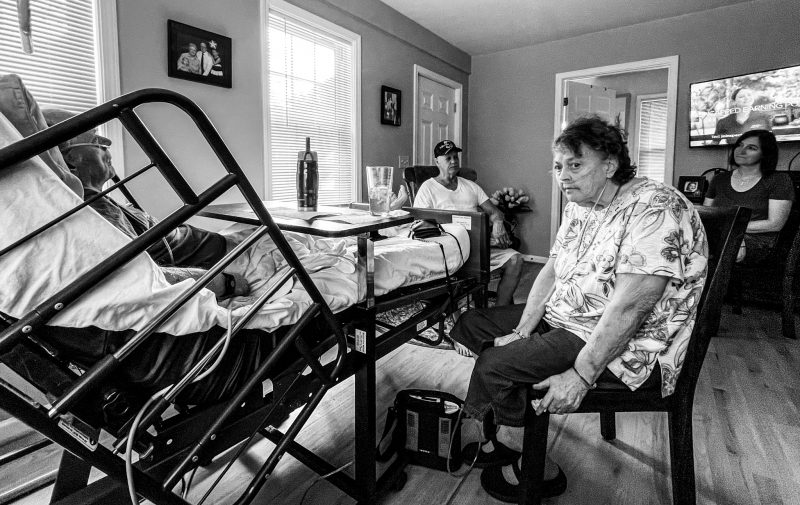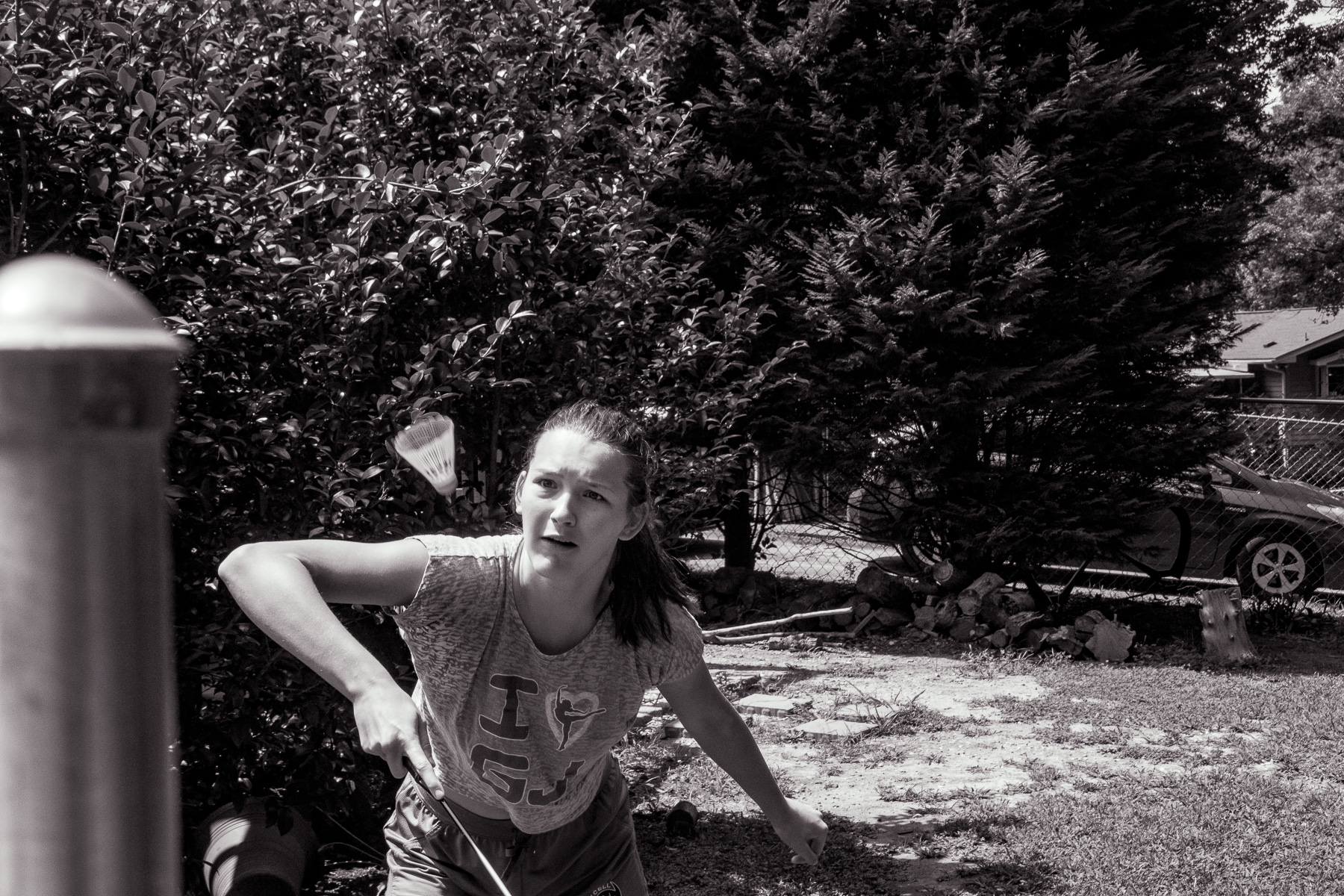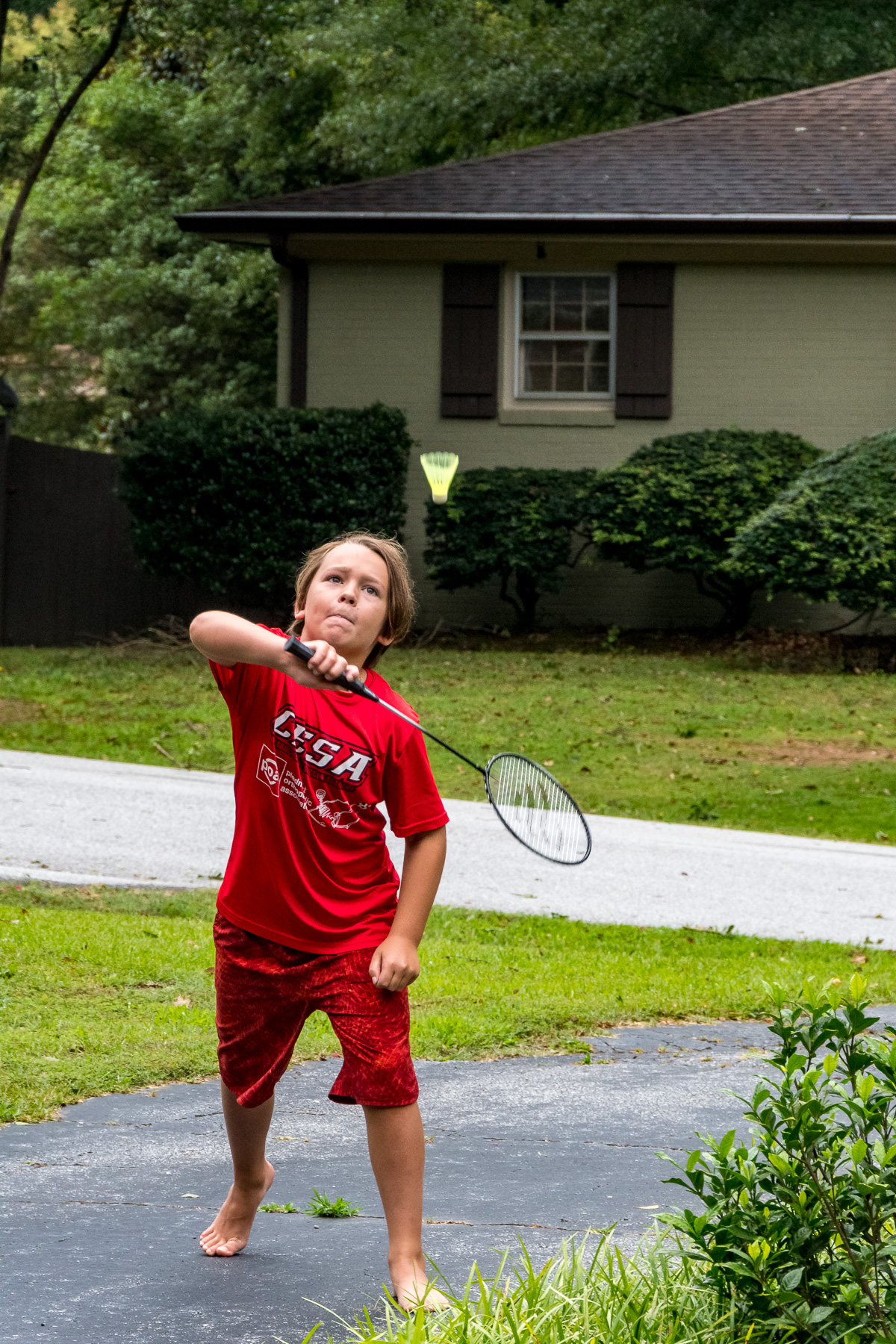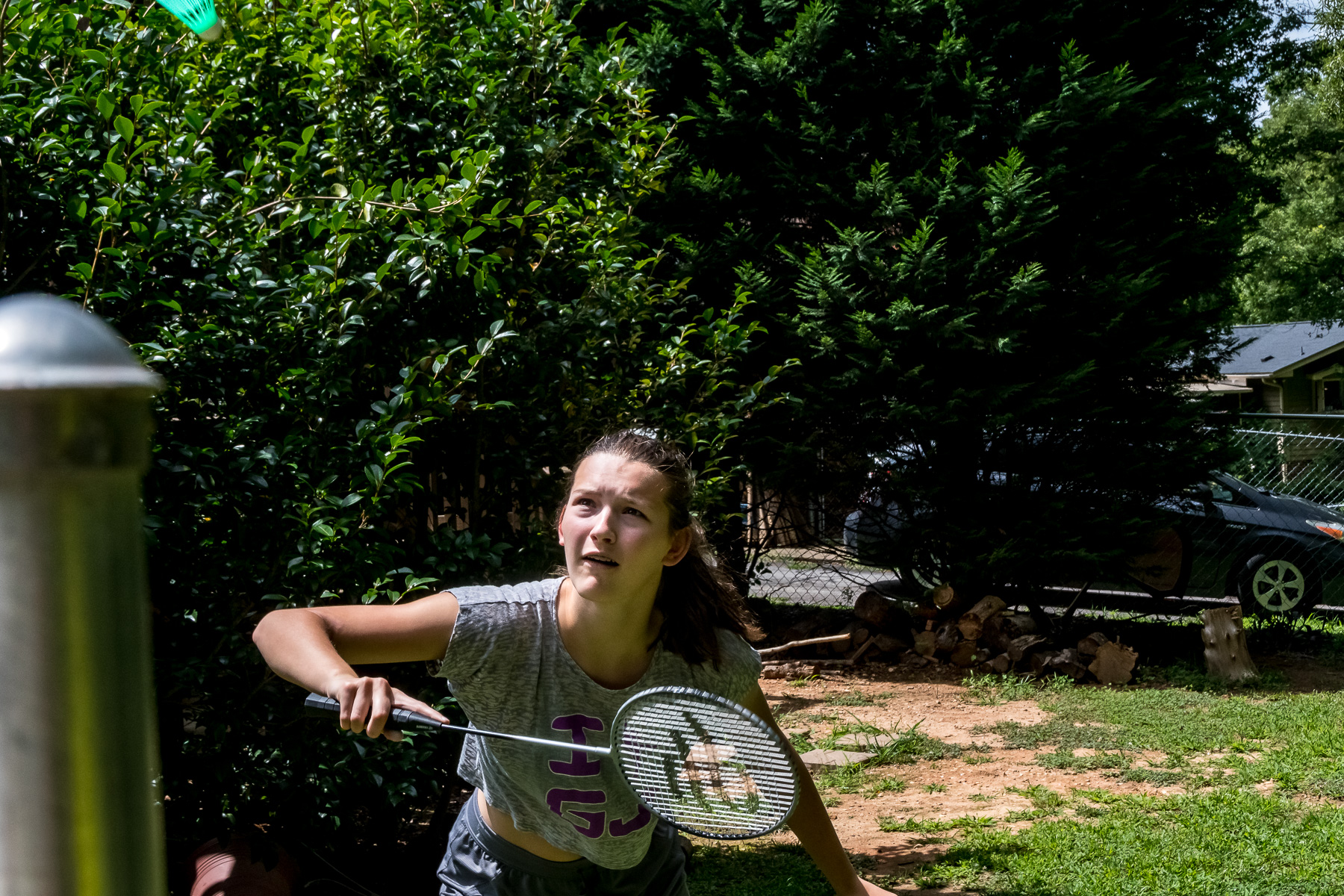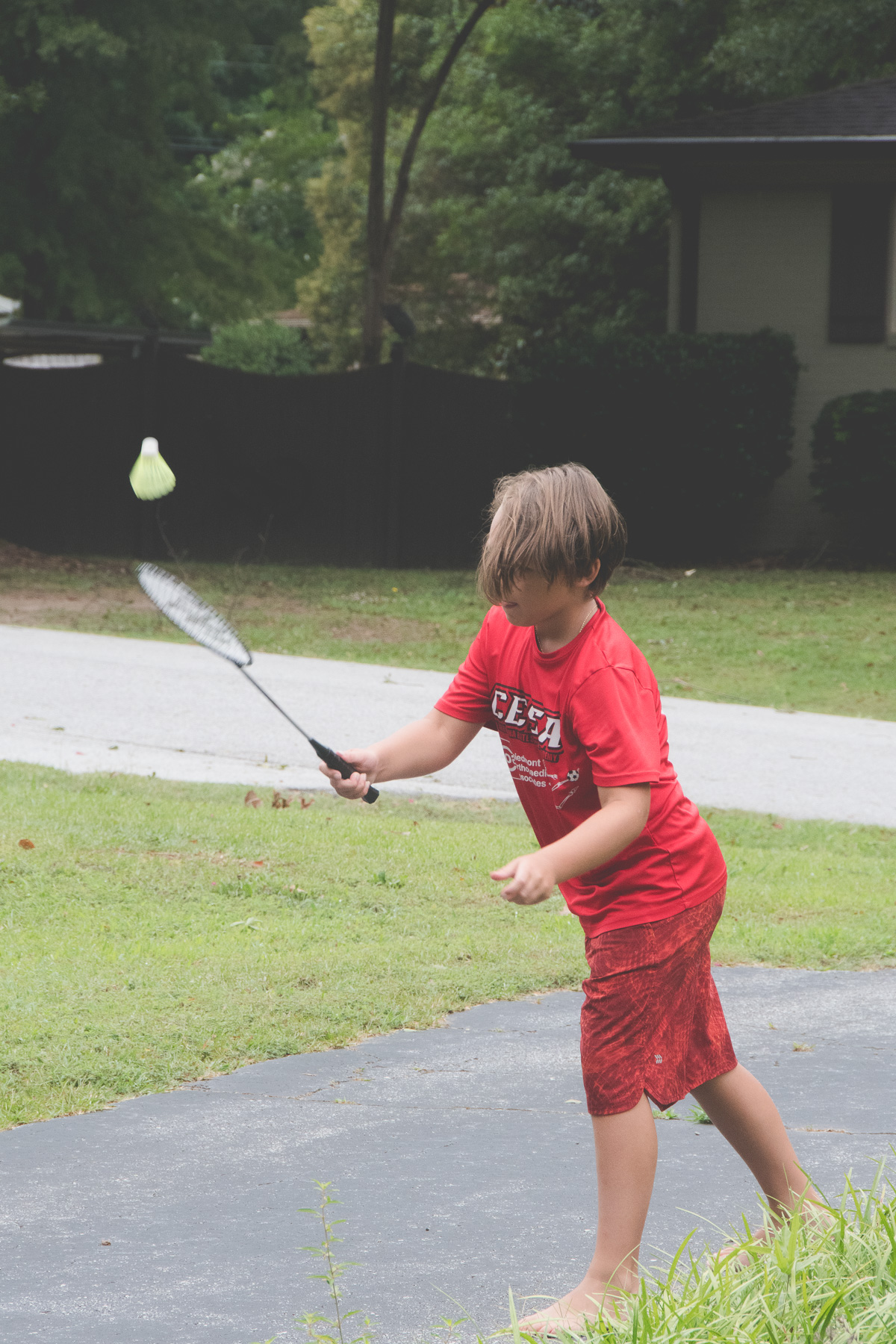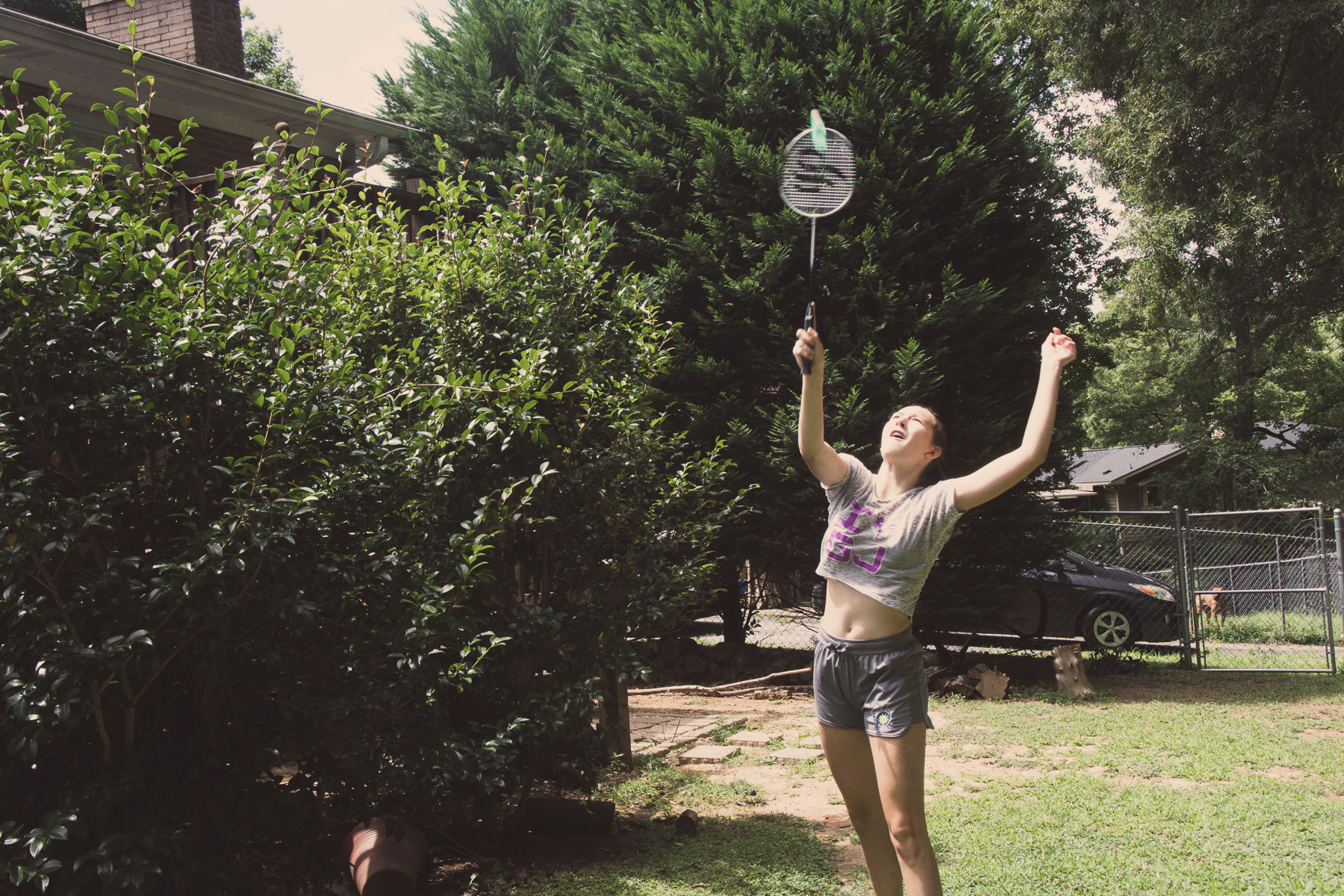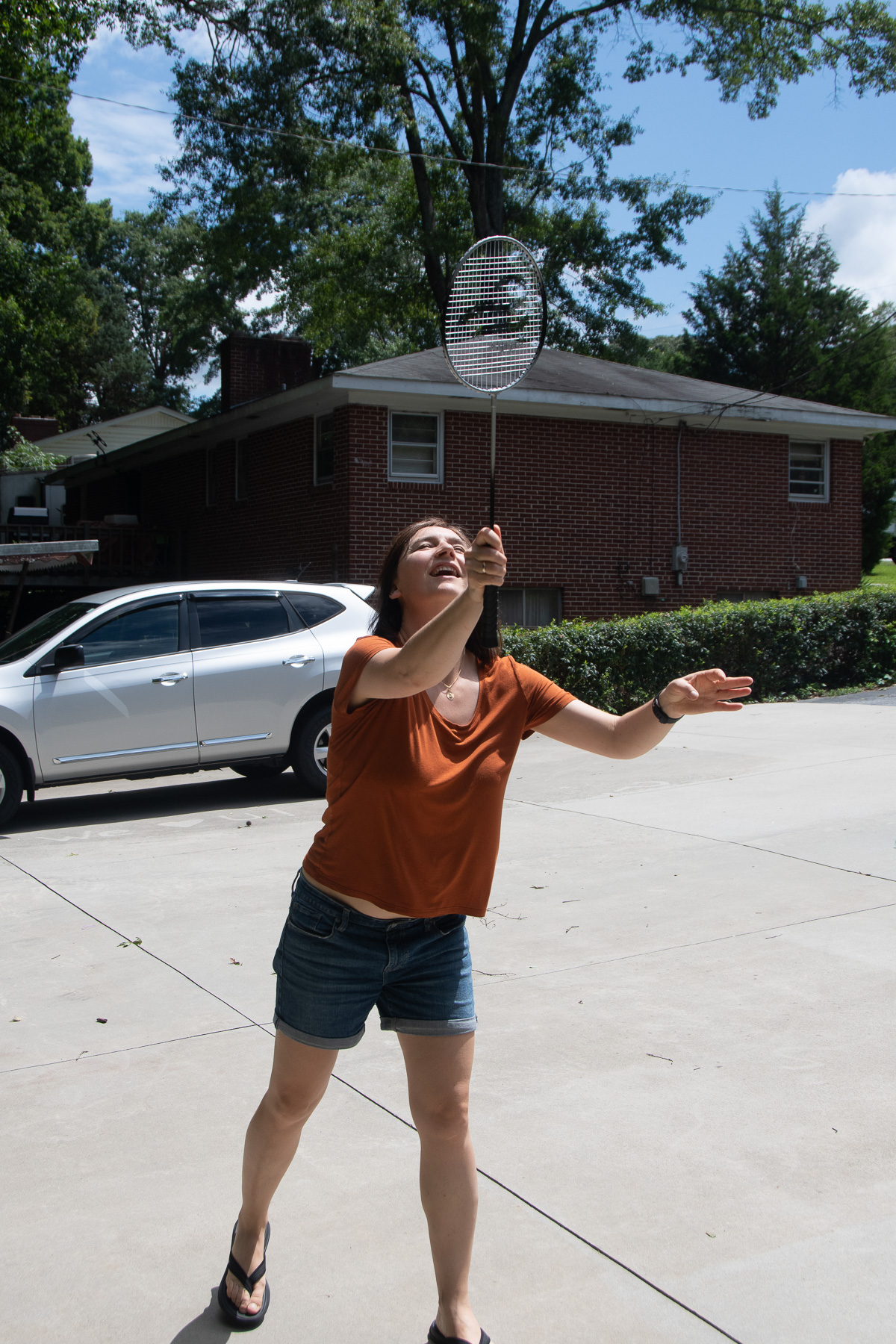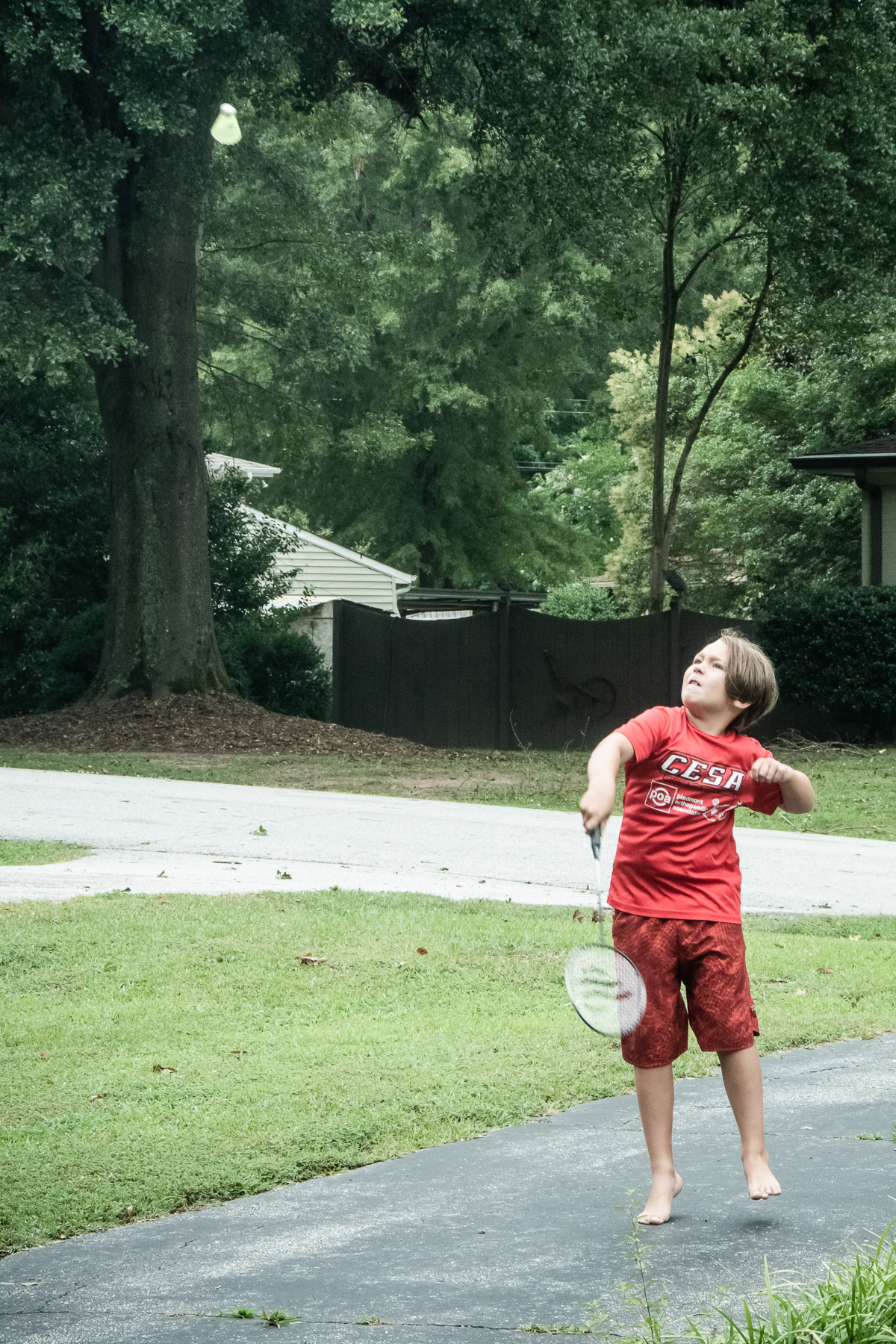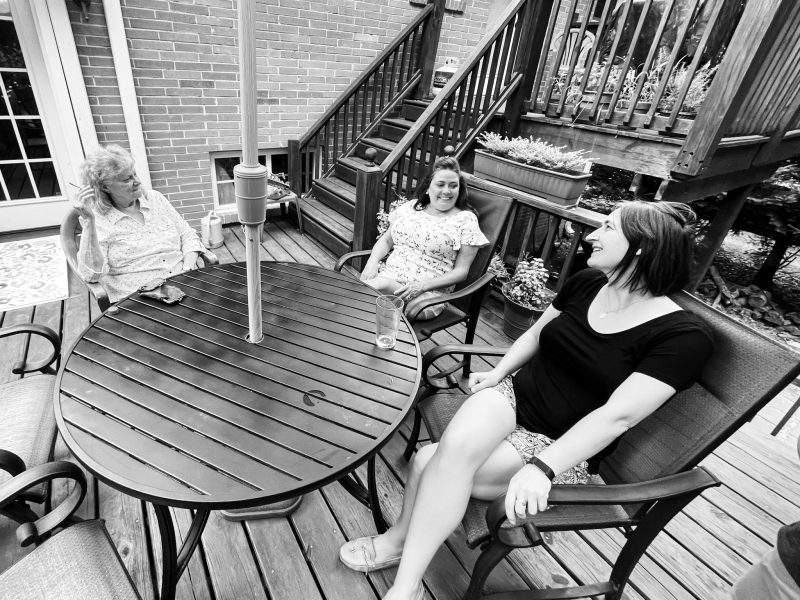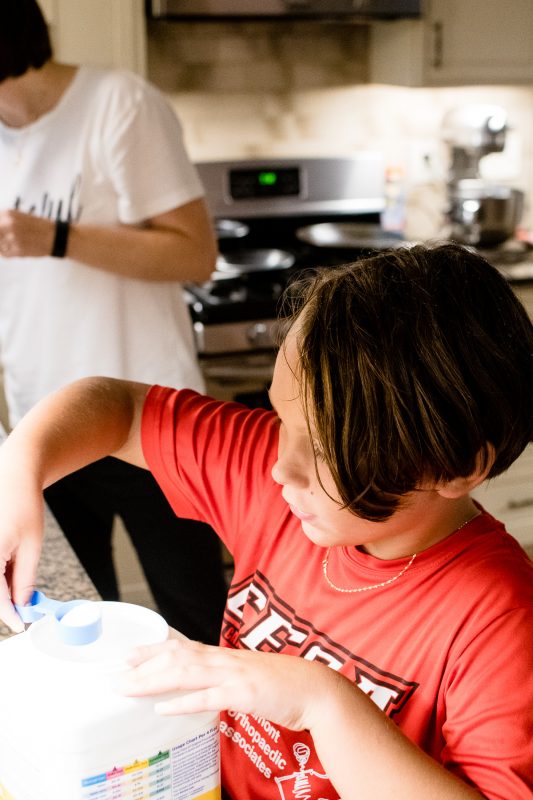
The Boy likes to help, so much so that it sometimes can get in the way. But often it is really sweet how he pitches in. Tonight, for example, he insisted on getting Papa’s evening water prepared, thickened with some magical mystery white powder that turns water into a pudding-like goop that’s easier for Papa to swallow and less risky as well. In the meantime, K was preparping Papa’s dinner: warm blueberry cobbler and ice cream. Soft, easy to chew, tasty — a perfect dinner.
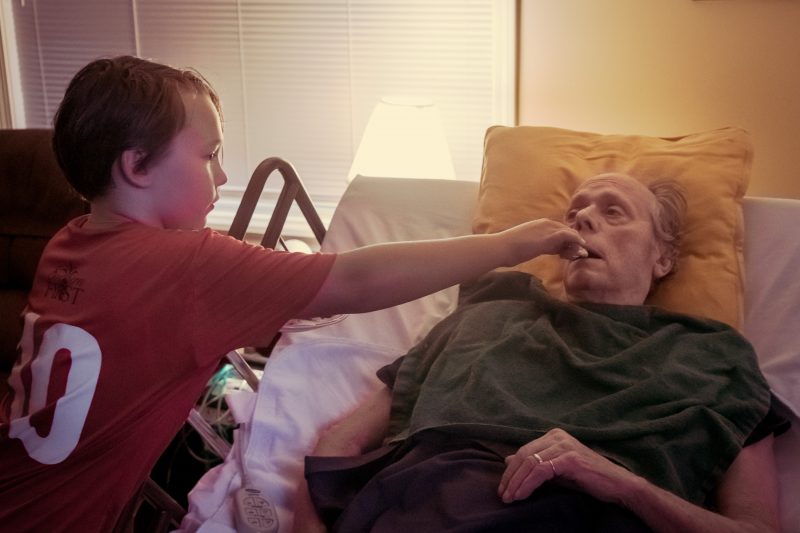
E then excitedly asked if he could help Papa eat.
“Of course,” we said. “Just make sure you go slowly: it’s difficult for him to swallow at times.” And so he stood patiently by Papa’s bed and helped him eat.
Nothing brings Papa back more completely than his grandchildren. Sometimes, when I walk in and greet him, I get no response. He’s off somewhere, seeing something, hearing something — but not there. Then E can walk in right behind me and say, “Hey, Papa,” and he perks right up: “Hey, little buddy.”
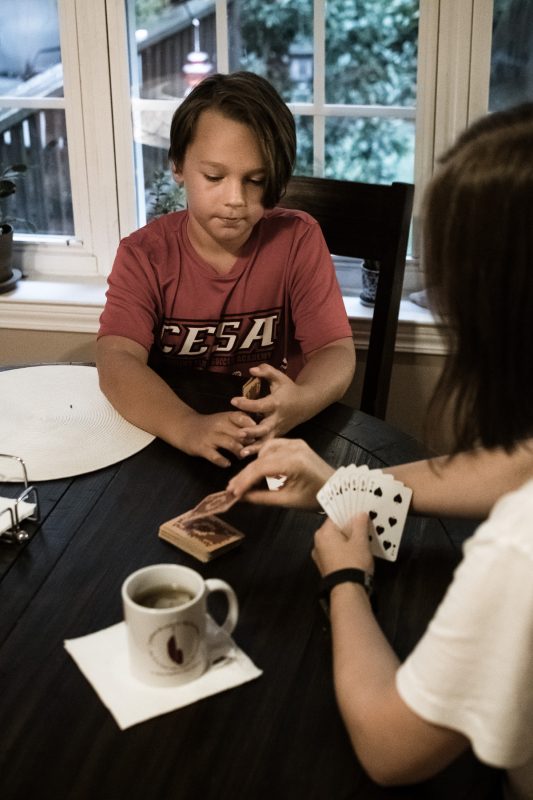
Once Papa is ready for his night’s sleep, I headed out to walk the dog while the Boy and K played cards. Last night, it was chess with me.
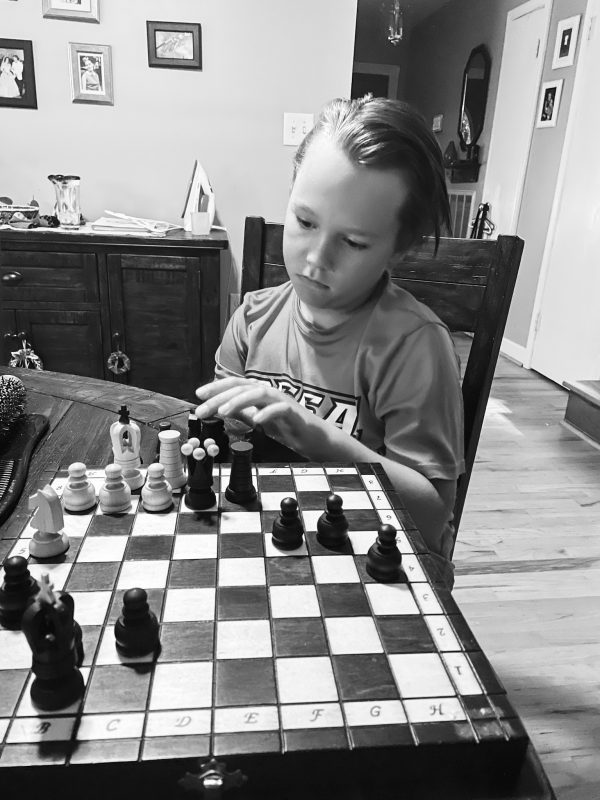
And L? She’s fourteen — just a little too cool to spend too much time with the family. Plus, she was at work today: she needed some down time.
